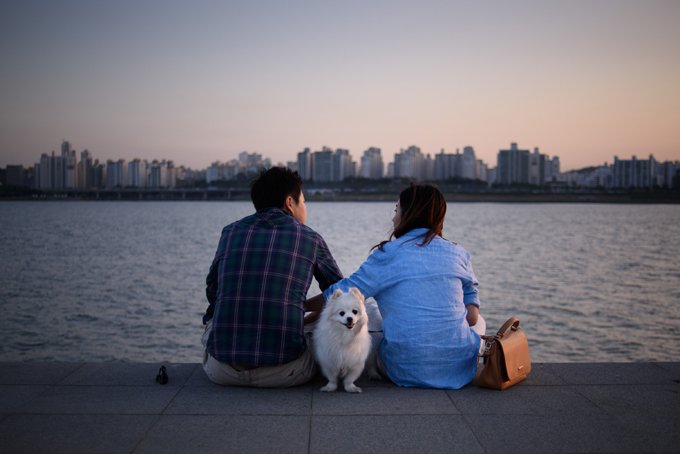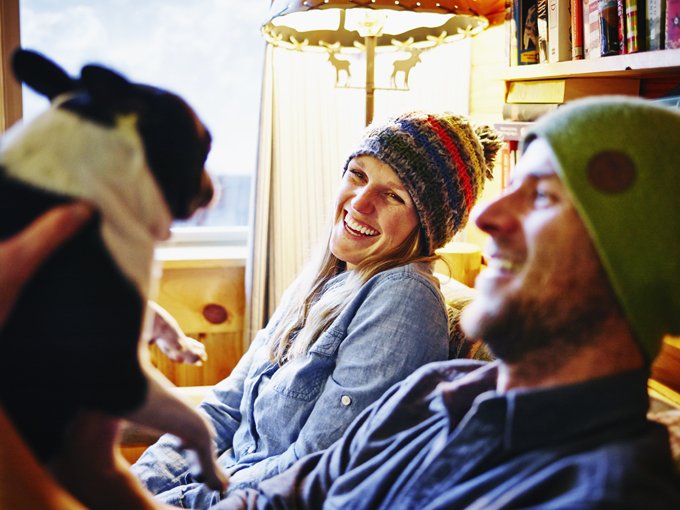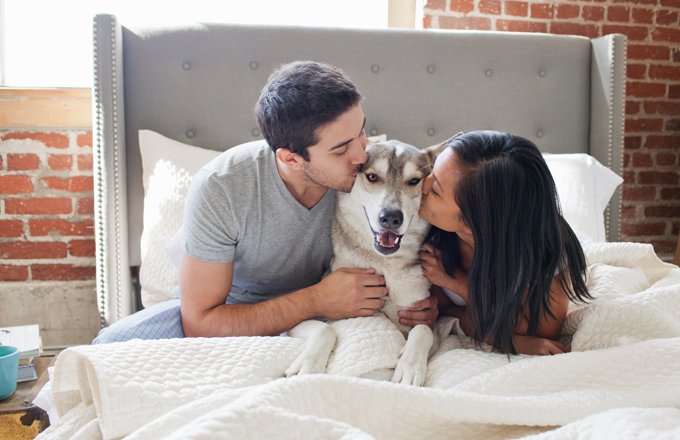In some ways, professional dog training is like family therapy — it’s better to get help before you need it. Whether you’ve known your dog longer than you’ve known your spouse, or even if you’ve adopted a pup as a couple, training your dog as a team can help strengthen your relationship with your human partner as well as with your pooch, and prevent any “it’s me or the dog” arguments.
“If it’s a couple, both the people should come to a training session,” says trainer Shar Mulligan of Waggles Academy for Dogs.
“It allows them to then speak the same language, and it allows them to understand the dog a little bit more, and that just takes a lot of pressure off of everybody,” she explains.
According to Mulligan, training a dog as a family builds unity, strengthens responsibility and encourages patience and commitment. She says working through the rough spots in training together reinforces the bonds between everyone involved.

An experienced trainer, Mulligan has even felt the power of training teamwork in her own family. Five years ago her husband, Trevor, fell in love with a fearful and highly reactive 18-month-old pup named Huxley.
For the first time in their marriage, the dog trainer’s spouse entered her professional world.
“Trevor really paid attention to his dog’s needs. They exercised together and attended my training classes,” Mulligan recalls.
As Huxley’s training progressed, the couple found they were often complimenting each other on his successes, and the positivity spread beyond their training sessions.

“When you’re in the groove of reinforcing your dog’s good behavior and great choices, it seems this mindset spills over into other chapters of your life and day-to-day activities,” says Mulligan, adding that both Huxley and Trevor are less stressed since finding each other, and the whole family is feeling more confident.
Mulligan is not the first to notice the positive impact a dog can have on his or her humans. Research has shown couples with dogs enjoy greater well-being than those without canine companions, and the closer the humans are to their dog, the better off they are.
The same research suggests people who have strong attachments to their dog and who confide in their dog — in addition to their spouse — report more satisfaction with marriage, life and their health, and experience stress relief. Another study suggests humans who don’t engage in activities with their dog (like agility, dog shows, hunting, herding, or training) have lower rates of emotional closeness.
Training as a triad allows both humans to reap the health and emotional benefits of bonding with the dog, while helping prevent destructive or disruptive canine behavior from negatively impacting the dog–human relationship, or the human-to-human relationship. Working together helps prevent either half of a couple from growing resentful of the dog, or their human partner, by creating a shared experience.
“Let’s say you’re trying to stop excessive barking — you’ll make a plan on how you’re going to do this, step by step, and it’s just really fun to share each other’s progress,” Mulligan explains.

She says sometimes a dog will have a more favorable response to one partner’s style of instruction over the other, and that’s okay — the dog is just telling you what ‘language’ he or she prefers. There’s no need to place blame, but one partner may need to adopt the other person’s style.
“It allows you to be consistent with your pet, so that you get the same responses and you meet the same training goals.”
Depending on your dog and factors like their personality and previous life experience, training may be challenging. At times, one or both humans may be tempted to quit, but the best outcomes happen when families stick with training, growing closer to each other, and their dog.
In the case of Huxley, Mulligan and her husband were dealing with the challenge of training a highly reactive pooch, but as the bond between the three of them deepened, Huxley became calm and confident — enough to join in on dog-friendly road trips and other fun, family outings. It’s an experience Mulligan is glad she shared with her spouse.
“This commitment and positive attitude that came along with raising a dog with fearful behaviors gave Trevor and I the strength, courage and coping skills we needed,” she says.









